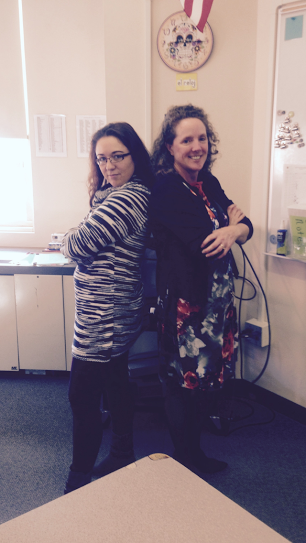Spanish vs. French

March 3, 2016
Learning a foreign language is something that every high schooler is going to have to face. It’s not usually the priority for freshmen who are just figuring out the school, but choosing the right language to study is essential.
According to local IHS senior Jake Warren, who has taken four years of Spanish, the most important factor in his language decision was what class his friends would be in. Jake said, “Most of my friends were doing Spanish, so it seemed like the best option.” Jake was lucky that he ended up really enjoying Spanish, because many other students end up regretting basing a decision off of their friends. It’s important to consider how you want to use foreign language after high school, as well as which language you would truly enjoy learning.
Still undecided on how to tackle language in high school? I interviewed two IHS teachers from the foreign language department to help you decide.
Spanish has dominated the language department at IHS in recent history. More students historically come from the middle school straight into Spanish at the high school, since Spanish is required to be taught at the middle school level. But in high school, the decision is entirely yours.
So why do more students take Spanish? Part of this trend is definitely due to the foundation of Spanish that freshmen already have. However, there are clearly other factors that influence students’ decision. One IHS Spanish teacher, Srta. Marotta, is a big advocate of students choosing to take Spanish. She points out that, “Spanish is such a universal language. It’s not only spoken by millions of people, but is also closely related to multiple Romance Languages.” Knowing Spanish is becoming more and more essential for living in the United States. With the influx of immigrants into the country, the population of Spanish speaking Americans is growing rapidly. In any community in the country, evidence of Hispanic culture can be seen.
In terms of general use, Spanish has a growing advantage over French in the U.S.. When asked about where knowing Spanish can be beneficial, Srta. Marotta replied with, “simply within your own community…I’m sure we can think of at least a few individuals who are native Spanish speakers.” Spanish and French are both Romance Languages, so neither has an advantage in this case. Knowing either Spanish or French can help with understanding Italian and Portuguese as well. In the workplace, it really depends on the location and type of job. Working in the south, you would encounter many more Spanish speaking employers, coworkers, and customers. Up north, there are certain areas and jobs where knowing French would be more useful. It’s important to consider what type of jobs you want to do after high school before making your language decision.
After hearing from the Spanish perspective, Mrs. Killian offered a different way of looking at the French program at IHS. Most students don’t fully understand what they can gain from learning French instead of Spanish. The benefits are more clear with Spanish, but Mrs. Killian argues that French can be just as useful depending on what you want to do. When I asked Mrs. Killian if she had a preference for teaching Spanish or French, she replied, “No, I love languages.” Teaching both Spanish and French has allowed Mrs. Killian to see both sides of the argument. But she feels that the French program has been misunderstood by many students. One area where Mrs. Killian believes French has an advantage is in the business world. Many international groups use French as their Lingua Franca, or common language. Although it can be seen more in the northern parts of the U.S., there is a huge number of people who can speak French worldwide. Mrs. Killian explained that, “The French are also known more for their technological advances. Jobs like engineering use more French than you would expect.” There is even a ton of French in the English language. Many English words are rooted in French, especially in the culinary arts. Words such as casserole, buffet, and even cafe come from the French language. If culinary arts appeals to you, then knowing French could greatly help you understand the names of many foods. There are so many things that you should consider when making the decision between Spanish and French.
Both language teachers feel the same way about how you should split up the four possible years of language. When I asked Srta. Marotta and Mrs. Killian whether they thought it was most useful to learn two years of each language, they both immediately responded no. Srta. Marotta explained that, “Three years is nowhere near enough to really gain a solid grasp of the language.” It’s better to come out of high school with a solid understanding of one language rather than only knowing the basics of both Spanish and French.
There’s a lot more to consider when choosing Spanish or French than just what your friends are taking. Think about how you want to use language after high school, as well as which language you will truly enjoy learning.

